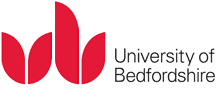About Education MA in University of Bedfordshire
This MA is designed for practising professionals, or those interested in research, in teaching and learning or educational leadership – usually in schools, the lifelong learning sector and universities.
Its modular structure allows you to personalise your choice of units and progress at a pace that best suits you, with a final phase focused on educational research via a dissertation.
The MA Education engages you with key issues in education and aims to encourage your evidence-based practice, as you make direct and meaningful connections between the course and your own experiences and aspirations.
The course helps you to broaden your knowledge of educational ideas and research findings, as you identify and justify recommendations for further action. This places you in a better position to develop your work as a classroom practitioner or school leader.
Intermediate qualifications available:
- Postgraduate certificate – 60 credits at Masters level
- Postgraduate diploma – 120 credits at Masters level
Why choose this course?
- Study on a modular course designed for existing and aspiring education professionals, that allows you to accumulate credit at a pace that suits you, with assessments based around needs specific to your role in your educational organisation
- Explore the process of teaching, learning support and/or educational leadership, focusing on personal, academic and vocational interests relevant to your educational context
- Develop your understanding of assessment formats with a negotiated focus in support of both individual and organisational needs
- Undertake primary research that informs your current practice, as well as acquire the necessary research skills to engage in future research and progress to a PhD or EdD programme
- Progress your study in education, e.g. following your Initial Teacher Education (ITE) course
- Develop your work in educational contexts
- Support developments within the organisation where you work
- Be prepared for further study at doctoral level (PhD and EdD).
Unit Information – What Will I Learn?
- Education and International Development
- Citizenship and Welfare in the 21st Century
- Research Methods in the workplace
- Dissertation (Education)
- Meeting Diverse Needs*
- Early years Education and Care*
- Analysing Policy: Children’s Voice*
How will this course enhance my career prospects?
We aim to integrate examples from practice, up to date case studies and projects focused on particular development projects and organisations throughout the course.
Visits to workplace settings and speakers from a range of settings will help to provide a good understanding of a range of future employment contexts as well as providing practice related understandings.
The course is designed to help you engage, study and critique key issues in education as well as to be able to identify and justify recommendations for further action.
As a Master’s graduate, therefore, you will have the confidence, knowledge and critical skills to prepare and present a strong application to senior posts in the field of education.
Previous graduates have gone on to take up enhanced roles within their organisation; some have undertaken PhD study.
To apply for a postgraduate degree (MA/MSc/MBA/LLM) at the University of Bedfordshire you should have a good honours degree (or equivalent qualification) in an appropriate subject from a recognised university or HE institution.
We will also consider candidates with other relevant qualifications or appropriate work experience
Formal English language tests accepted
The University accepts the following qualification as satisfying the English Language requirements for entry to a Bachelor or Master's degree
IELTS overall score of 6.0 with minimum 5.5 in each element
TOEFL iBT - Listening: 17, Reading: 18, Speaking: 20, Writing: 17
Pearson PTE - Listening: 51, Reading: 51, Speaking: 51, Writing: 51
University of Bedfordshire Highlights
| Type |
Public |
| Campus Setting |
Urban |
| Application portal |
Online |
| Academic Calendar |
Semester-based |
| Mode of Payment |
Online via e: vision account; Debit and Credit cards |
| Acceptance Rate |
70-80% |
Bedfordshire University Average Tuition Fees And Other Expenses
Here is a table showing the determined the average cost of attendance (Estimated Tuition fee and Living cost)
| Level |
Total Fee |
| Undergraduate |
£12,350 (p.a.) |
| Post Graduate |
£12,750 (total) |
| MBA |
£14,000 (total) |
| Average cost of Living |
£1,200–1,500. |
Bedfordshire University Application process
Application Fee: £18 (UCAS)
Some necessary supporting document needs to be attached with the application
- A complete application form along with the attached signature of the applicant.
- Proof of English Proficiency Language
- TOEFL (iBT): Listening and Writing: 17; Reading: 18; Speaking: 20.
- IELTS: 6.0 (5.5 in each Section)
- Pearson PTE: 52-54
- Official Academic qualifications and certificates.
- Copy of valid passport details.
- Submit the copies of UK visa as well as the documents of any previous visa refusals.
Application Deadline: No such specific deadline for direct application submission.
Note: However, applicants are advised to complete and submit the application before 30 days of the start of the course.
Here is a table showing the determined the average cost of attendance (Estimated Tuition fee and Living cost)
